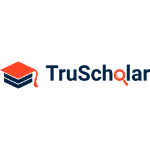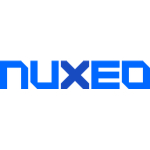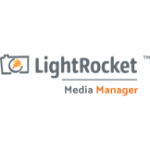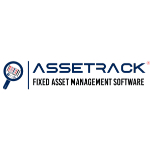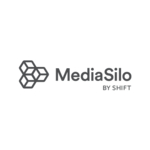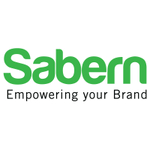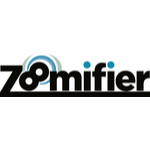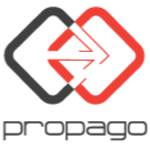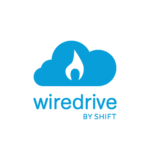TechnologyCounter provides genuine, unbiased real user reviews to help buyers make informed decisions. We may earn a referral fee when you purchase through our links, at no extra cost to you.
List of 15 Best Digital Asset Management Software
Showing 1 - 15 of 122 productsTruScholar, a powerful software created for students, is poised to revolutionize the way learning is approached. With its intuitive design features, TruScholar aims to enhance students academic journey by providing them with a dynamic tool for organi...Read TruScholar Reviews
Nuxeo is a software solution that streamlines and simplifies document and content management for businesses worldwide. With its user-friendly interface features, Nuxeo makes organizing, accessing, and collaborating on important files easier and more...Read nuxeo Reviews
LightRocket Media Manager is a tool designed for content creators and media professionals. It streamlines the process of managing, organizing, and sharing media assets, making it an essential tool for anyone looking to elevate their content creation...Read LightRocket Media Manager Reviews
AsseTrack FAMSis a ultimate solution for asset management. Streamline your asset tracking process, increase efficiency, and minimize losses with this powerful software. Say goodbye to the hassle of manual asset management and hello to a more organize...Read AsseTrack FAMS Reviews
Imagen the latest software that guarantees to revolutionize your visual content management. With its user-friendly interface features, Imagen streamlines the process of storing, organizing, and sharing images and videos. Say goodbye to clunky data ma...Read Imagen Reviews
Marvia, the innovative software that will revolutionize your business. Developed with state-of-the-art technology, Marvia offers a wide range of features that will streamline your workflow and boost your productivity. Say goodbye to tedious tasks and...Read Marvia Reviews
MediaSilo is a media management platform designed for creative professionals. With its user-friendly interface and robust features, MediaSilo streamlines the process of collaborating, sharing, and organizing media files. Perfect for teams of all size...Read MediaSilo Reviews
Brandifyer is a software designed to streamline and enhance your brands online presence. With its advanced features interface, it offers a seamless solution for managing and optimizing your digital marketing efforts. From social media management to w...Read Brandifyer Reviews
Zoomifier is a dynamic software designed to revolutionize virtual presentations and meetings. With its innovative tools and user-friendly interface, Zoomifier empowers individuals and businesses to connect, collaborate, and share seamlessly. Say good...Read Zoomifier Reviews
Propago is a powerful, all-in-one platform for managing your print and marketing materials. With easy-to-use tools features, Propago streamlines the entire process from creation to distribution, saving you time and money. Say goodbye to manual proces...Read Propago Reviews
Founded in 2013, Clarifai Organization has revolutionized the world of computer vision with its advanced technology. Using state-of-the-art AI algorithms, the organization provides accurate visual recognition solutions to various industries. Empoweri...Read Clarifai Organization Reviews
Digizuite offers a robust digital asset management solution that simplifies and streamlines the process of managing, organizing, and distributing digital assets for businesses of all sizes. With a user-friendly interface and powerful features, Digizu...Read Digizuite Reviews
TESSA DAM is a software designed to revolutionize the way businesses manage and store their digital assets. With its user-friendly interface features, TESSA DAM streamlines the process of organizing, sharing, and accessing digital files, making it an...Read TESSA DAM Reviews
Limecraft Flow is a solution for streamlining your video production process. With its intuitive interface and powerful features, Flow allows you to seamlessly collaborate with your team is a ly manage your media assets. Say goodbye to time-consuming...Read Limecraft Flow Reviews
Wiredrive is a digital asset management platform that allows creative professionals to easily store, collaborate, and share their work with clients and team members. With an intuitive interface and robust features, Wiredrive streamlines workflow and...Read Wiredrive Reviews
- What Is Digital Asset Management Software?
- Top Reasons Why Businesses Need Digital Asset Management Software?
- What Are the Top Key Features of Digital Asset Management Software?
- What Are the Top Benefits of Digital Asset Management Software?
- What Are the Steps to Choose the Right Digital Asset Management Software?
- What Are the Types of Digital Asset Management Software for Different Industries?
- What Are the Technology Trends for Best Digital Asset Management Software?
- What Are the Deployment Options for Digital Asset Management Software?
What Is Digital Asset Management Software?
Digital asset management software is a specialized system developed to facilitate the storage and administration of many types of digital assets within businesses. These assets encompass a wide range of media, including photographs, videos, audio files, and documents, among others.
The best digital asset management software is a storage and tracking mechanism designed for the purpose of storing, tracking, and facilitating the sharing of digital assets. The best DAM software facilitates the organization and optimization of teams' digital assets, hence enabling seamless access to the most up-to-date versions as required.
This is accomplished through the management of the complete workflow, encompassing the stages of acquisition, organization, storage, retrieval, and distribution. The program facilitates the retrieval of desired information by organizing assets into cohesive groups, hence enhancing accessibility and efficiency.
Top digital asset management software provides robust security features that effectively safeguard assets against unwanted access or alteration. Security features encompass a range of mechanisms, such as user authentication systems, watermarking, encryption, and automatic backup methods.
In general, the best digital asset management systems are a highly beneficial tool for enterprises since it enable the secure storage and efficient management of digital assets. The use of this system guarantees that teams are provided with up-to-date iterations of digital information, hence streamlining workflow procedures and diminishing the duration required for locating necessary resources.
Additionally, the implementation of security measures ensures the protection and preservation of assets, hence maintaining their cleanliness and integrity.
Top Reasons Why Businesses Need Digital Asset Management Software?
1. To preserve and protect digital assets: Digital asset management software enables enterprises to securely store and protect their digital assets through the implementation of measures that prevent illegal access, offer a reliable backup solution, and employ data encryption techniques.
2. To enable easy access to digital assets: The establishment of a centralized platform enables consumers to conveniently access digital assets, facilitating enterprises in efficiently locating and utilizing digital content as required.
3. To facilitate collaboration and workflow: The use of access control settings and a user-friendly interface in DAM software fosters inter-team communication and expedites the development process.
4. To simplify version control: The best digital asset management tools facilitate the storage of numerous iterations of a given digital asset, hence enabling users to conveniently retrieve previous and subsequent versions in the event of modifications or enhancements.
5. To ensure proper asset tracking: The best DAM software offers a distinctive monitoring system that enables enterprises to effectively monitor the utilization and storage of their assets across various platforms.
6. To save storage space: The utilization of the best digital asset management software enables organizations to effectively compress their digital assets, while ensuring that the quality of images remains intact and the accuracy of material is not compromised. This is made possible by the implementation of intuitive compression functions within the software.
7. To ensure clear rights management: Through the integration of copyright and licensing databases, top digital asset management software guarantees that firms maintain a comprehensive and precise comprehension of the rights and permissions required or possessed while using digital assets.
8. To optimize brand consistency: The best digital asset management systems play a crucial role in enabling businesses to effectively manage and regulate the utilization and availability of their digital assets. This technology facilitates the maintenance of a cohesive and unified corporate identity across various platforms.
9. To improve searchability: Digital item Management (DAM) software offers sophisticated search capabilities that are specifically built to expediently discover and retrieve any requested digital item.
10. To boost efficiency: Digital asset management software facilitates the optimization of many procedures related to the administration of digital assets, hence enabling enterprises to enhance resource utilization and achieve cost and time efficiencies.
11. To facilitate leash organization: The best DAM software facilitates the organization of digital assets by the systematic categorization into user-friendly folders and subfolders. This enables enterprises to efficiently locate, classify, and retrieve their digital assets as required.
12. To optimize the creative process: The best digital asset management tools facilitate enhanced management of digital assets for enterprises through the implementation of access control settings. This enables users and teams to engage in more efficient collaboration and expedite the process of content creation.
13. To ensure integral security: DAM software guarantees the safeguarding of digital assets against unwanted access through the implementation of advanced security measures, including data encryption and access control.
14. To adhere to global regulations: The utilization of diverse compliance methods by DAM software facilitates firms in ensuring adherence to relevant rules and regulations.
15. To encourage better customer experience: DAM software facilitates the enhancement of the digital experience for customers by offering a single platform for asset management to enterprises.
What Are the Top Key Features of Digital Asset Management Software?
The top key features of digital asset management software include:
1. Storage and Organization: The top digital asset management systems facilitate the effective storage of digital assets, hence facilitating their seamless organization and retrieval through the utilization of tagging, searching, and comparable techniques.
2. Robust Security: Digital asset management software is designed to guarantee the secure storage and protection of all digital assets through the implementation of comprehensive security mechanisms, including user permissions and encryption protocols.
3. Version Management: The best DAM software facilitates efficient version control, enabling users to effectively monitor and manage the various iterations of a digital asset.
4. Content Sharing: Digital asset management solutions facilitate the seamless dissemination of digital assets among users through various means, such as link sharing, notification transmission, or attachment sending.
5. Automation: Digital asset management platforms offer automation capabilities that enable users to automate repetitive operations, resulting in time and effort savings.
6. Workflow Management: Digital asset management solutions facilitate the optimization of collaboration and workflow management within teams and organizations.
7. Integration: The integration of digital asset management platforms with other software applications or web platforms facilitates the optimization of digital asset management processes.
8. Metadata: Top digital asset management systems facilitates the storage and administration of metadata associated with digital assets, hence enhancing the efficiency of cataloging and expediting the retrieval process.
9. Analytics: Digital asset management solutions enables users to evaluate the efficacy of digital assets and do data analysis in order to facilitate more informed decision-making.
10. Mobile Accessibility: Mobile applications and web-based portals are frequently utilized to access the best digital asset management software, enabling users to conveniently access their digital assets while on the move.
What Are the Top Benefits of Digital Asset Management Software?
1. Improve Accessibility: Digital asset management software facilitates the storage, administration, and dissemination of digital assets, including but not limited to photographs, videos, and audio files, in a convenient and efficient manner for enterprises.
This functionality facilitates users' convenient and efficient access and utilization of the necessary digital asset at any time and location.
2. Streamline Collaboration: The best DAM software facilitates streamlined collaboration by providing teams with the capability to share resources, collaborate on projects, and monitor revisions inside a unified and centralized system.
3. Improve Brand Consistency: DAM systems enable brands to effectively maintain the conformity of their digital assets with the brand's prescribed visual and messaging criteria.
This practice will contribute to the maintenance of brand integrity and consistency across various platforms and channels where the brand's visuals and assets are utilized or disseminated.
4. Increase Efficiency: Digital asset management software possesses the capability to automate routine processes, including the uploading, organization, and labeling of digital assets. This automation has the potential to enhance operational efficiency.
5. Enhance Security: DAM systems provide advanced security functionalities, including the implementation of password-protected accounts, user-level permissions, and the ability to track and monitor audit trails.
This enables enterprises to effectively safeguard their digital assets and exercise authority over the individuals who are granted access to them.
What Are the Steps to Choose the Right Digital Asset Management Software?
1. Identify your organization's needs: Prior to commencing the quest for DAM systems, it is imperative to meticulously record the precise features and functionalities that will be indispensable for fulfilling the requirements of your firm.
2. Establish budget parameters: After the identification of relevant features and functions for the firm, it is imperative to ascertain the budgetary allocation available for the procurement of a digital asset management platforms.
3. Research software: Conduct an investigation on the various digital asset management software solutions that are now accessible within the marketplace.
It is imperative to ensure that the solution being evaluated possesses the requisite features and functionalities that align with the specific requirements, while also being mindful of its compatibility with the allocated budget.
4. Evaluate software based on requirements: After identifying many digital asset management software solutions for evaluation, it is essential to assess them against the established requirements and ascertain the most suitable option that aligns with the specified needs and financial constraints.
5. Ask for a trial: Kindly solicit a presentation or complimentary trial of the digital asset management solutions under consideration to ascertain its alignment with your anticipated requirements. It is imperative to consider many factors such as the level of customer support, availability of hosted solutions, user-friendliness, compatibility with existing systems, and software upgrades or modifications.
6. Purchase and implement: Once the top digital asset management systems have been thoroughly evaluated and the user is confident in their features and functionalities, the software can be acquired and the implementation process can commence.
It is imperative to ensure that the digital asset management platforms is appropriately set up and seamlessly connected with other systems. It is imperative to ensure the presence of requisite training and support mechanisms.
What Are the Types of Digital Asset Management Software for Different Industries?
The availability of top digital asset management software for different industries is primarily contingent upon the specific requirements of the respective business or organization.
In a general sense, the best digital asset management tools can be classified into four primary categories:
1. General DAM Software: The top digital asset management systems suites have been specifically developed to facilitate the efficient management and secure sharing of media assets among corporate entities.
Typically, comprehensive digital asset management software encompasses many functionalities, including the best digital asset management systems, content libraries, and workflow tools.
2. Media DAM Software: Media DAM systems primarily center on facilitating the management and storage of substantial quantities of visual media, including photographs, videos, and graphics, for organizations. These solutions provide customers the capability to systematically arrange and oversee enormous collections of digital assets.
3. Brand DAM Software: The primary objective of Brand DAM systems is to facilitate effective management of branding assets within organizations, ensuring consistency and security throughout the process.
These solutions are commonly employed to uphold the integrity of the company's brand identification during the entirety of the marketing process.
4. Creative DAM Software: Creative DAM systems are specifically developed to facilitate the management of creative projects and assets by professionals in the creative industry, ensuring a structured and systematic approach.
Typically, the top digital asset management systems encompass several components, such as repositories of creative assets, tools for managing workflows, and tools for project management.
What Are the Technology Trends for Best Digital Asset Management Software?
The key technology trends for the best digital asset management software include the following:
1. Cloud-Based Storage Solutions: The utilization of cloud technology offers a highly efficient and economically viable approach to securely store digital information. Cloud-based solutions are experiencing a growing popularity in the realm of digital asset management platforms due to their ability to offer users safe and distributed storage alternatives.
2. AI-Enabled Automation: The utilization of artificial intelligence (AI) has become prevalent within the realm of digital asset management platforms. The integration of artificial intelligence (AI) technology into automation systems enables users to conveniently streamline and mechanize various operations pertaining to their processes of managing digital assets.
3. Automated Workflows & Metadata Management: Automated workflows facilitate the creation of streamlined and automated procedures for the effective management of digital assets. The implementation of embedded metadata facilitates the effective organization and categorization of digital assets, hence enabling efficient metadata administration.
4. User Permissions & Access Security: The inclusion of user rights and access security measures is crucial in top digital asset management software. This feature enables users to safely engage in the access, uploading, and downloading of digital assets, while concurrently imposing restrictions on access for other users.
5. Comprehensive Reporting & Analytics: The utilization of comprehensive reporting and analytics facilitates users in acquiring a deeper understanding of the utilization and efficacy of their digital assets. The provided information has the potential to enhance digital asset management operations and enhance user experience.
What Are the Deployment Options for Digital Asset Management Software?
Digital asset management software can be deployed in several ways.
1. On-premise: This refers to a scenario in which the digital asset management solutions are hosted on a dedicated server that is under the management of the customer's own IT department. This deployment method enables comprehensive system control and is widely adopted by small to medium-sized enterprises.
2. Hosted: In instances where the best digital asset management tools are hosted by a third-party source, such as a cloud storage provider or web hosting provider, the hosting arrangement is established. This particular deployment strategy offers the advantage of minimum overhead and can prove to be highly cost-effective.
3. Hybrid: This approach represents a synthesis of the two aforementioned strategies. The installation and management of certain components will be undertaken by the IT department of the customer on their premises, while the hosting of other components will be outsourced to a third-party supplier.
4. SaaS: Software-as-a-Service (SaaS) is an acronym that denotes a cloud-based deployment model designed for the purpose of the best digital asset management systems. The provider manages and hosts all components, so enabling clients to utilize the software with minimal operational costs.
Irrespective of the selected deployment strategy, it is imperative for top digital asset management software to offer extensive access control, scalability, and robust data security measures.
